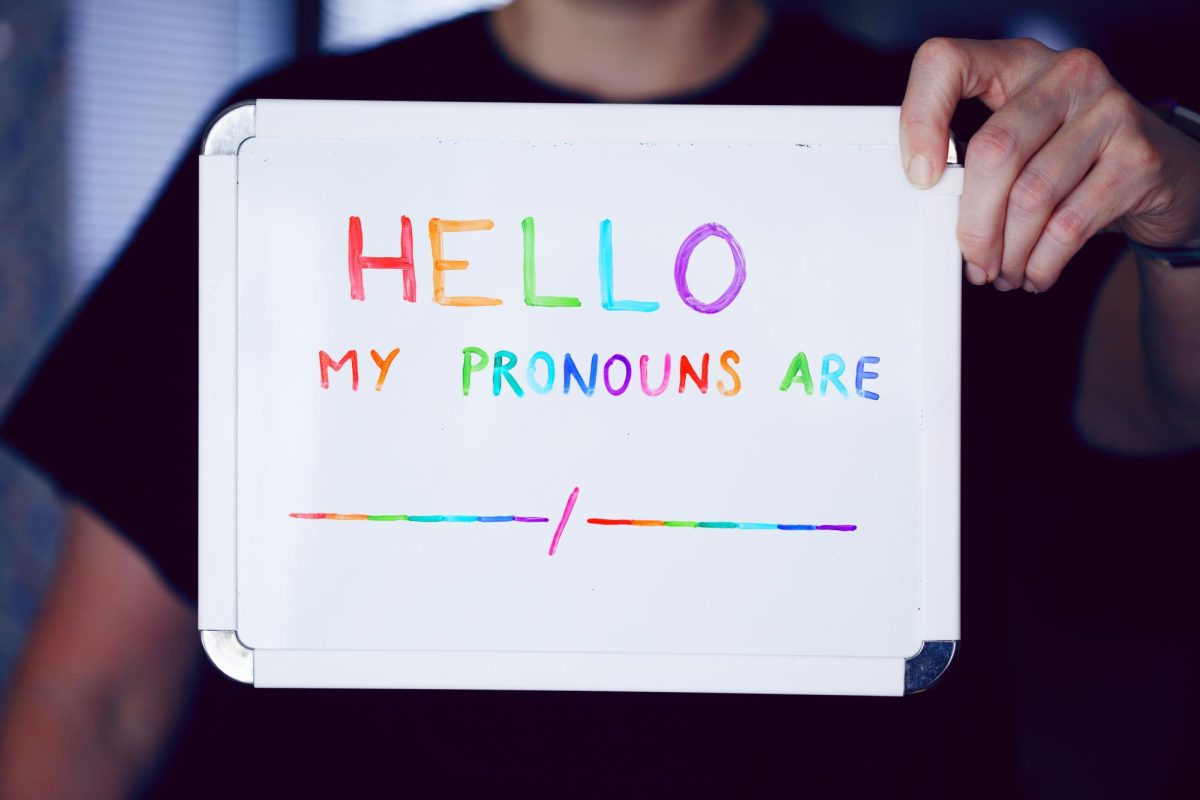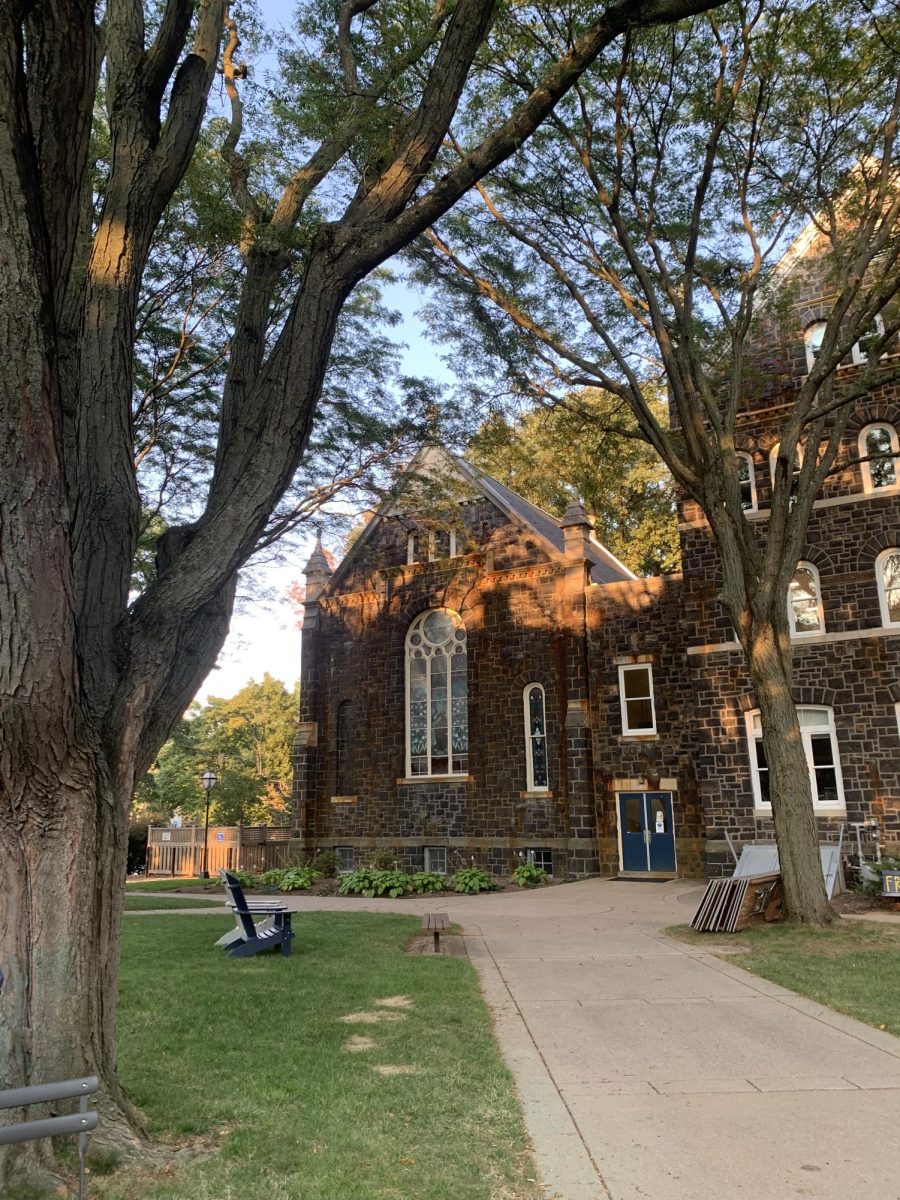The Israel-Palestine crisis did not start on October 7, 2023. This is a crisis over 75 years in the making. From the Balfour Declaration to the two-state “solution” and the Abraham Accords, there is considerable nuance that envelops its historical fabric. That’s why it is important to learn about it beyond only fragments of information.
This war in Israel and Gaza is a humanitarian crisis, rooted in post-World War II trauma and ethnic cleansing. In just six days, Israel dropped over 6,000 bombs, which is nearly as much as the number of bombs that the U.S. used in Afghanistan in a single year.
Many Americans who observe the conflict have an American-centric view and struggle to separate the people from their government. But, Hamas does not represent all Palestinian people and Benjamin Netanyahu does not represent all Israelis. It is possible to support ceasefires in Palestinian territory without being antisemitic and without wanting the eradication of the Jewish population in Israeli-controlled land.
It is important to recognize that Hamas does not represent the vast majority of Palestinians. Placing the burden of political decisions solely on the shoulders of ordinary citizens oversimplifies this deeply complex situation and puts guilt on the wrong people; this conflict started over 75 years ago, and the citizens caught in the crossfire are blameless victims, not the enemy.
Yes, the Palestinian people elected Hamas in a 2006 election, but the election was not as simple as many have portrayed it to be. While it is easy to initially place the blame on the people of Gaza for the actions of Hamas, it’s important to understand the context behind their rise to political power in 2006 and how that is reflected today.
First, Hamas was not elected by a majority of Palestinians; it got a total of 44% of the total vote. There were six parties in the running in this election, with Hamas and Fatah as the front runners. Fatah got 41% while the other parties got a total of 12.3% of the vote. So to place the blame on everyone in Gaza for a win by plurality rather than a 50% majority is reductive to the circumstances behind the election. According to the Washington Post, Hamas didn’t get over 50% of the votes in any single district.
Furthermore, approximately half of the Palestinian population in 2023 consists of people under 18, meaning a fraction of the current citizens cast a ballot in support of Hamas. Along with that, over half of the population was under 18 back in 2006. More than half the population did not have a say at the time Hamas was elected, and today, half the population wasn’t even alive for these elections.
To say the least, Hamas does not represent the people of Gaza as many claim it does. Since 2006, there has not been another election so, for all intents and purposes, this has been an anti-democratic regime that has not ruled with the proper consent of the people of Gaza who at the time were in overwhelming support of a two-state solution, according to a poll that was cited by the U.S. State Department.
Israeli President Isaac Herzog is on record saying: “[Gaza is] an entire nation out there that is responsible,” and he is only one of many who have propagated propaganda; officials and agencies have similarly minimized the extent of the crisis to delegitimize the plight of Palestinians. Even in America, Florida Representative Brian Mast said, “There are very few innocent Palestinians” on the House Floor.
In addition, many believe that Hamas being elected was a common case of U.S. intervention, leading to further problems. After Israel pulled out of the Gaza Strip in 2005, a power vacuum occurred, which former President Bush assumed would be filled by a democratic government, so he urged the Palestinian Authority to hold parliamentary elections.
Despite being urged by multiple ambassadors, such as Dennis Ross, a Middle East envoy, to postpone the election or prevent militant groups such as Hamas from participating, President Bush’s Secretary of State, Condoleezza Rice, refused on the grounds that, “the U.S. shouldn’t put its thumb on the scales,” despite already doing so. To the surprise of the people of Gaza and the wider international community, Hamas won, and soon after, civil war broke out between them and Fatah, leading to the latter’s eventual expulsion from the Gaza region. Since then, no elections have been held and Hamas has maintained leadership over the Gaza Strip.
While Hamas’ ideology is Islamist and uses armed resistance as its main strategy against Israel, the Fatah group is more secular and utilizes more negotiation tactics. While Hamas does not recognize Israel, Fatah does, but both want to build a state on the basis of the 1967 borders.
Fatah on paper sounds like the ideal party, but by the time the 2006 elections rolled through, they were widely criticized and disliked for their incompetence, corruption, and nepotism. At that same time, Hamas deliberately tried to portray itself as a moderate pro-democracy platform.
Just before the election, senior Hamas official Ghazi Hamad said, “We are a moderate organization, really. We are not a radical organization, and we are not extremist or fundamentalist, no. We are an open-minded organization. [We] believe in democracy and the freedom and political pluralization.” Today, he and other Hamas leaders have continually defended the Oct. 7 attack on Israel, which killed over 1,400 people, most of whom were Jews. To say the least, many Palestinians were sold a false bill of goods in 2006.
Even if all Palestinians supported Hamas, Israel’s actions would still be abhorrent because collective punishment like this is still considered a war crime under the Geneva Convention. It’s essentially like convicting an entire group of people for a crime that only a few of them committed.
Just like it’s important to not conflate Hamas with the people of Gaza, it is also important not to conflate the Israeli government with the people of Israel. A recent poll found that 76% of Israelis want Israeli Prime Minister Benjamin Netanyahu to resign, with the vast majority of people saying that they don’t trust him in his conduct of the war and place blame on the Israeli government for the attack on Oct. 7.
Netanyahu has historically been a peace-through-power leader with a long history of fiercely opposing a peaceful resolution to the conflict. He was fiercely against the former prime minister Yitzhak Rabin’s signing of the Oslo Peace Accords, which attempted to create a framework towards a peaceful resolution under the Clinton administration. Later, he spoke at a rally opposing the Accords with protestors chanting, “In blood and fire, we will expel Rabin.” Soon after that, Rabin was assassinated by a far-right Israeli extremist.
Today, Netanyahu has embraced the farthest right flank, with one official having been convicted of supporting terrorist organizations and of inciting racism, while his finance minister openly said on TV in 2015 that Hamas was an asset to be utilized to delegitimize the Palestinian Authority on the national stage.
Furthermore, Netanyahu has faced mass protests in the last year due to his push to eliminate the independent judiciary and the human rights concerns that arose from that. To say the least, the zealotry of Netanyahu has proven to be unpopular among Israeli citizens.
Nearly 50% of Israel’s population does not support a large-scale ground offensive in Gaza and 47% want a peace-based solution to the conflict. That said, the Israel Democracy Institute found in a poll that the vast majority of Jewish Israelis think toppling Hamas is an important goal. How that toppling would occur, however, has been contentious among the population.
So just like it’s important not to conflate Hamas with everyone in Gaza, it’s also important to not conflate Netanyahu with everyone in Israel. Just as this conflict is divisive here, it is also divisive in both Israel and Gaza.
It is possible to empathize with the pain and struggle of one community while also not denying or delegitimizing the suffering of another.
However, with all these considerations, the concern for human life should be the most important issue at hand. Calls for a ceasefire have yielded temporary results, but a four-day break is not enough. Over 15,500 Palestinians have been killed in the Gaza Strip, 6,000 of whom are children. At this point, a call for a permanent ceasefire is not political – it is a moral necessity. These innocent civilians are in the wrong place at the wrong time, and they should not be used as pawns in the larger scheme of territorial warfare.
In America, there has been a substantial spike in islamophobia and anti-semitism, especially in academia. Muslim and Jewish students alike do not feel safe or welcomed on their campuses due to hate crimes and harmful rhetoric. In a land of liberty, liberty itself feels optional, or more realistically, unachievable when people do not understand the full scope of a crisis.
On Oct. 11, 2023, a Palestinian-American boy was murdered in Chicago by an elderly landlord. On Oct. 26, the Beverly Hills home of a Holocaust survivor was vandalized with anti-Semitic graffiti. On Oct. 31, a Cornell University student threatened to rape and kill Jewish students on campus. On Nov. 15, a Palestinian-American family sustained severe injuries when they were trying to flee Gaza. On Nov. 24, three Palestinian-American students in Burlington, Vermont, were shot for wearing keffiyeh scarves.
F.B.I director Christopher Wray addressed how the war in the Middle East could inspire discriminatory actions against Arab and Jewish Americans. In the past month, colleges and universities such as Columbia, University of Pennsylvania, and Lafayette College have been under investigation due to complaints of Islamophobic and anti-semitic threats. Many institutions also have had student-led protests which have been scrutinized in these investigative inquiries.
California Governor Gavin Newsom recently said in a debate with Florida Governor Ron DeSantis that, “This is not complicated to me; this is a fight between good and evil.”
These kinds of broad and sweeping generalizations are not productive when discussing this highly complicated conflict but even worse, they conflate the people with the governments that are supposed to represent them. The people of both Israel and Palestine are vastly unsupportive of this conflict, and the actions of both governments have put the common people in the crossfire of both Hamas’ and Netanyahu’s political vendettas.
Without a critical understanding of what is happening, the majority of Americans often overgeneralize and use reductive rhetoric when speaking about the crisis. Even if this crisis may seem “far away,” the American people need to realize that there aren’t simple good versus evil answers to this humanitarian crisis.






